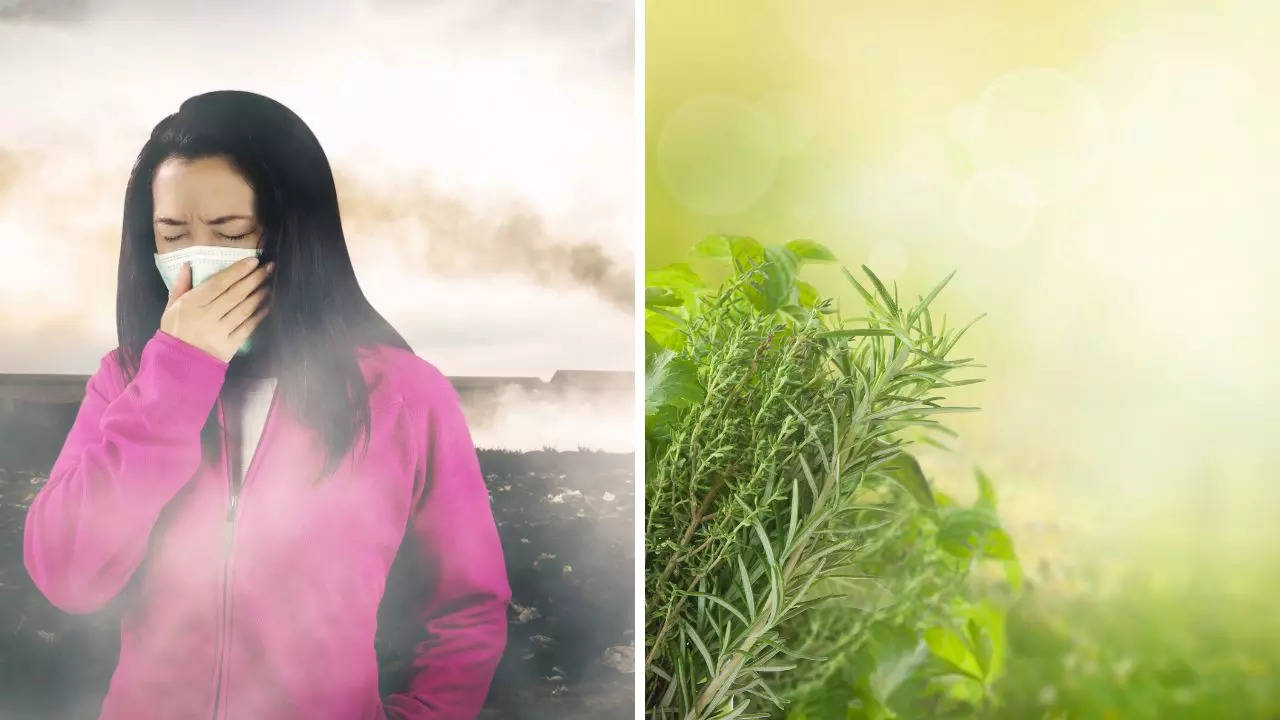Contents
-
news
-
Health
Kalmegh: Miracle herb or overhyped remedy? Delhi’s AQI at 1700, can it really protect you from pollution?
Is Kalmegh the wonder herb that can save you from the toxic air of Delhi? With AQI reaching 1700, any suggested solution is bound to grab our attention. So let’s see what it has to offer

How useful is Kalmegh?
Due to AQI reaching poisonous levels in Delhi, the arrival of people in OPD has increased. Doctors at leading hospitals are reporting a significant increase in the number of patients suffering from pollution-related health problems such as respiratory problems, worsening asthma, eye irritation, sore throat and sinus congestion. Dr Chandrakant Tark, senior consultant, department of pulmonology, Apollo Hospital, has warned that prolonged exposure to pollution can also lead to serious conditions like reduced lung function, cardiovascular problems and weakened immune response, making people more likely to suffer from it. Become more sensitive. respiratory infection.
With the current health concerns in Delhi-NCR, any suggested solution is bound to grab our attention. So, when lifestyle coach Luke Coutinho, who is known for helping people improve their lives through diet and lifestyle changes, talks about a herb. KalmeghIt will attract everyone’s interest. Of course, he shared it with some disclaimers, but it’s worth noting. This is especially important now, as doctors warn against using over-the-counter (OTC) medications like decongestants and antihistamines without caution. They warn that although these drugs may reduce symptoms for a short period of time, using them too much can cause side effects such as high blood pressure, dry mouth and drowsiness. Older people should be extra cautious, as these medications may interact with other medications they may be taking. Do not use inhalers or steroids on your own for breathing problems without consulting a doctor. If the symptoms do not go away, it is better to consult a doctor rather than relying too much on OTC medicines.
What is Kalmegh?
So, coming back to Kalmegh – is it really a wonder herb? It is a herb commonly used in Ayurveda and naturopathy to manage problems like fatty liver and high blood pressure. scientifically known Andrographis paniculataIt is native to India and Sri Lanka. It is grown in parts of Asia and is relied upon to treat bacterial infections and other diseases. However, it is especially valued for its ability to detoxify the liver.
Lifestyle coach Luke Coutinho, despite generally avoiding sharing herbal remedies on social media, shared his thoughts on the herb Kalmegh on his Instagram today. He expressed that he was concerned that such treatments would be misused, might conflict with medications, or perhaps be promoted without proper research. However, he highlighted Kalmegh as an herb worth exploring, given his experience of using it with patients during the lockdown so far.
Luke believes that the anti-inflammatory properties of Kalmegh may benefit people suffering from inflammation, asthma or COPD, helping to reduce symptoms and improve breathing. It may also help thin mucus, making it useful for people with bronchitis or chronic respiratory infections, and it supports the immune system. Additionally, Luke suggests that blackcurrant may help the body detoxify pollutants, which is especially important in the current pollution crisis. He further adds that it can be taken in capsule form or through boiled leaves, as recommended by Ayurvedic practitioners.
However, there are different views. In a September Twitter post, Dr. AB Phillips, known as a liver doctor, shared concerns about the misuse of Kalmegh and he even said that it has misleading claims about treating cancer and treating jaundice. Because of the claims it should be banned.
Luke’s post clearly highlights the need to seek treatment responsibly while remaining vigilant against misinformation. So talk to your doctor if you are already taking any medications or are allergic to some ingredients.
In the current scenario, since the elderly and small children are especially sensitive to pollution, limit outdoor activities as much as possible, especially on days with high pollution levels. Use an air purifier indoors to reduce pollutants and wear an N95 or similar quality mask outdoors. It is also important to stay hydrated and avoid exposure to smoke, dust and other irritants.
Drinking warm liquids such as herbal tea can help soothe a sore throat and loosen mucus. Inhaling steam with a few drops of eucalyptus or peppermint oil can provide relief from nasal congestion. Honey and ginger tea have anti-inflammatory properties and can reduce cough. Including antioxidant-rich foods like fruits, vegetables and turmeric helps strengthen immunity. However, these should complement, not replace, prescribed medications or preventive measures for acute symptoms.
Get the latest news live on Times Now with breaking news and top headlines from around the world.


